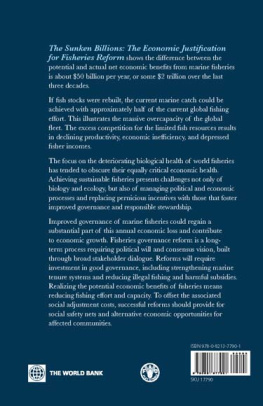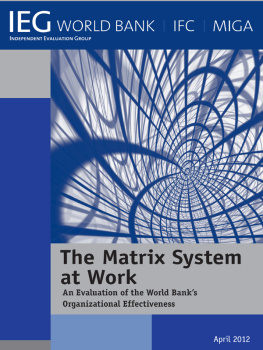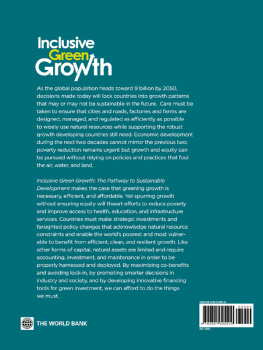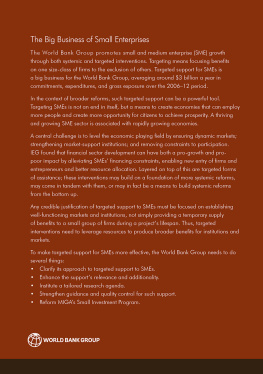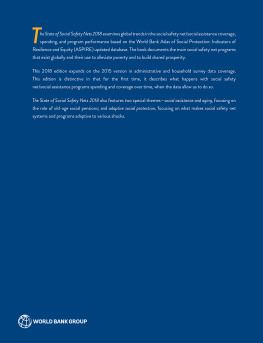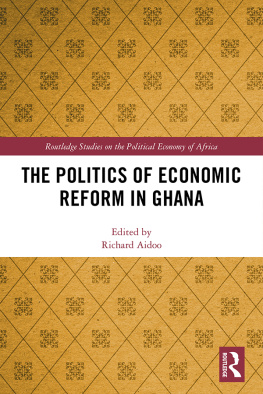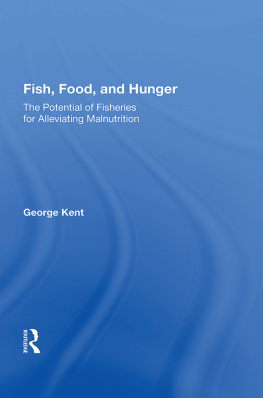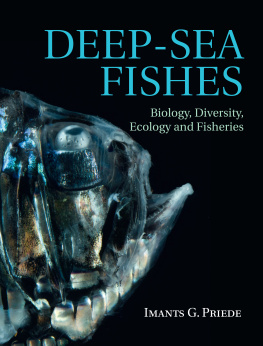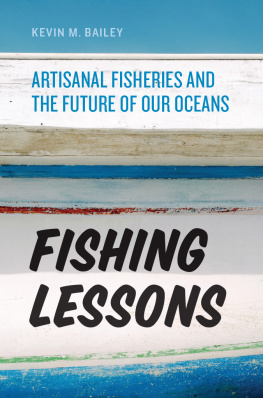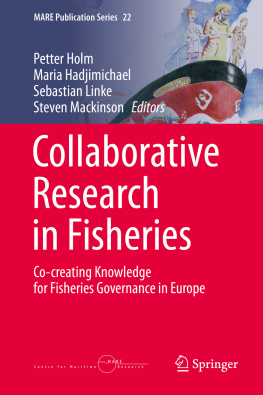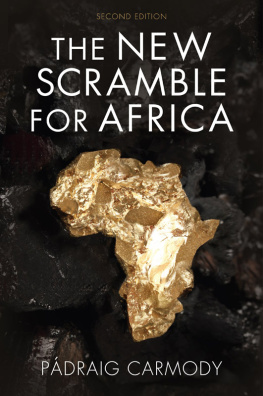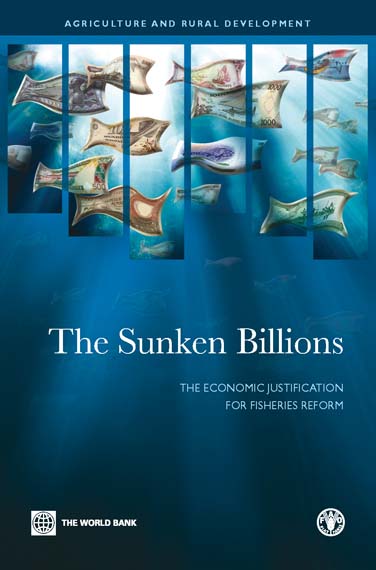Economically healthy fisheries are fundamental to achieving accepted goals for the fisheries sector, such as improved livelihoods, exports and food security, and the restoration of fish stocks, which is a key objective of the Plan of Implementation adopted at the World Summit on Sustainable Development in Johannesburg in 2002. Many national and international fishery objectives focus on maintaining or increasing the quantity of capture fishery production while less attention is devoted to the economic health of fisheries.
An analysis of key global trends in fisheriesincluding fish production and consumption, the state of the fish stocks, and employment in the sectorprovides the context and builds a profile of the economic health of the worlds marine fisheries. Estimates of the economic value of global marine fishery production and costs of production are used as inputs to an aggregate economic model to derive a range of estimates of potential economic rents lost, largely as a result of suboptimal governance of the marine fisheries worldwide. Key assumptions underlying the model are described.
1.1.1 Purpose and Outcomes of the Study
The purpose of this study is to raise the awareness of decision makers regarding the economic dimensions of the crisis in the worlds marine capture fisheries. The target group includes not only fisheries professionals, many of whom grapple with this crisis on a daily basis, but a broader audience of policy and decision makers who can foster reforms in fisheries with a view to rebuilding fish wealth and capital as a basis for economic growth and biologically and economically healthy fisheries.
The study shows that, in aggregate, the global marine fisheries in the base year, 2004, represent a net economic loss to society and often a poverty trap for dependent communities. The study shows that if marine capture fisheries were organized to move fisheries in the direction of maximizing economic efficiency, then national fisheries sectors, fishing communities, and society as a whole would reap substantial economic benefits. The political, social, and economic costs of such reforms are briefly discussed.
1.1.2 Structure of the Study
provides an overview of trends in global fisheries to set the context for the study.
describes the economic performance of the worlds capture fisheries. The study reviews the main determinants for the economic performance of global fisheries, such as the value of fish production, the cost of factors of production, and productivity trends. The available global data sets are described as a framework for selection of the parameters used in the model. Fisheries are shown to benefit from significant subsidies that often undermine sustainability and maintain inefficiency. Illegal fishing is recognized as a governance failure undermining the economic and biological health of fisheries. Substantial additional work is suggested to remove uncertainties with respect to the magnitude of unrecorded catches at the global level.
presents the approach and method used to build a bioeconomic model of the aggregate global fishery. Additional technical details of the model are provided in the appendixes.
presents the results of the analysis, highlighting the poor economic health of the worlds marine fisheries and the need for greater attention to improving the economic well-being of fisheries and fishers: as a sustainable source of economic growth, as a pathway out of poverty, as a means of contributing to food security, and as a way to build resilience to the impending effects of climate change.
discusses the results and draws on available case studies to identify key elements in moving fisheries toward a more economically rational base without sacrificing fundamental social objectives in pursuit of economic efficiency.
Four appendixes provide supplementary information.
1.2 The Deteriorating State of The Marine Fishery Resources
The crisis in marine fisheries has been well documented in biological terms. This study focuses on the economic health of the worlds fisheries as a complement to the numerous reviews of the ecological state of the global marine fisheries. Globally, the proportion of fully exploited, and either overexploited, depleted, or recovering fish stocks has continued to increase from just above 50 percent of all assessed fish stocks in the mid-1970s to about 75 percent in 2005 ().
Box 1.1 Stagnating Global Marine Catch
The box figure indicates that the reported global marine catch has stagnated at a level of 8085 million tons since 1990. This stagnation hides several underlying trends in the composition of the catch as described below.
One-half of the marine capture fish stocks monitored by the FAO are designated as fully exploited, producing at or close to their maximum sustainable yield. Another 25 percent of the marine fish stocks are either overexploited, depleted, or recovering from depletion and are yielding less than their maximum sustainable yield (). The remaining 25 percent of the marine capture fish stocks are underexploited or moderately exploited, and although this implies that more could be produced, many of these underexploited stocks are low-value species or species for which harvesting may be uneconomical. Global production of seafood from wild stocks is at or close to its long-run biological maximum.
Box Figure Reported Global Marine Catch, 19502006
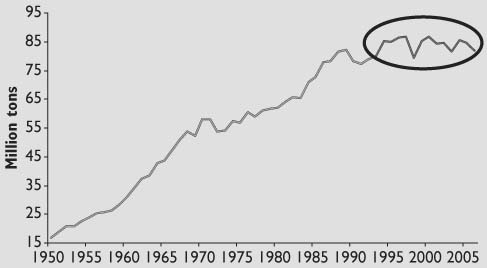
Source: FAO FishStat Plus.
Between 1950 and 1970, the recorded catch of both the demersal (bottom-dwelling) and pelagic species (species that live in the upper layers of the sea) grew considerably (). Since 1970, demersal fish catches have stabilized at around 20 million tons a year, while pelagic catches grew to a peak volume of almost 44 million tons in 1994. Since then, annual pelagic catches have fluctuated between 36 and 41 million tons.
Figure 1.1 Catch of Selected Species Groups in Marine Fisheries
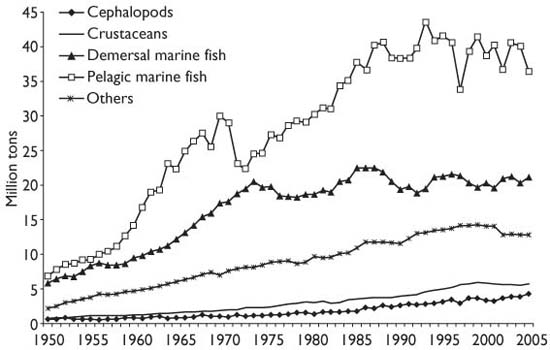
Source: FAO FishStat Plus.
Thus, the global fish supply from marine capture fisheries increasingly relies on lower-value species characterized by large fluctuations in year-to-year productivity, concealing the slow degradation of the demersal high-value resources. About 17 percent of the global catch reported to FAO by member countries is not reported by species group. Thus, the FAOs FishStat Plus database does not readily allow assessment of these species composition changes on a global basis. This change in the species composition of the catch is commonly referred to as fishing down marine food webs ().
The changing patterns of discards (fish caught but dumped unwanted at sea) also suggests that the global catch now comprises substantial quantities of lower-value, previously discarded fish: the amount of fish discarded may have decreased by over 10 million tons between 1994 and 2004 ().

